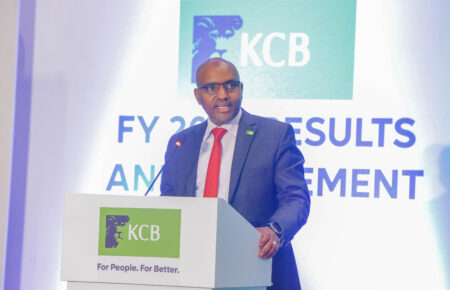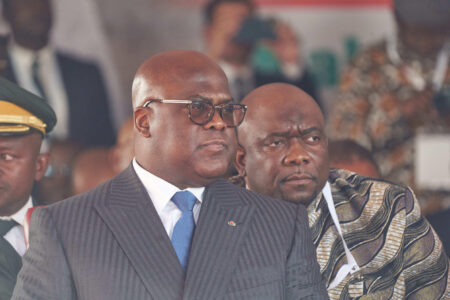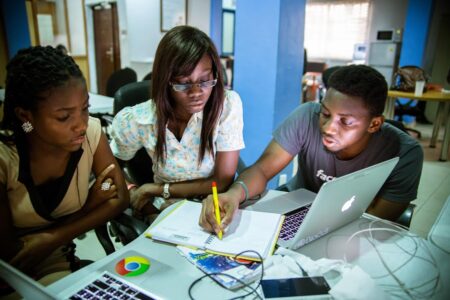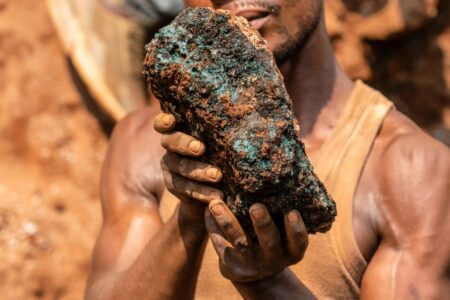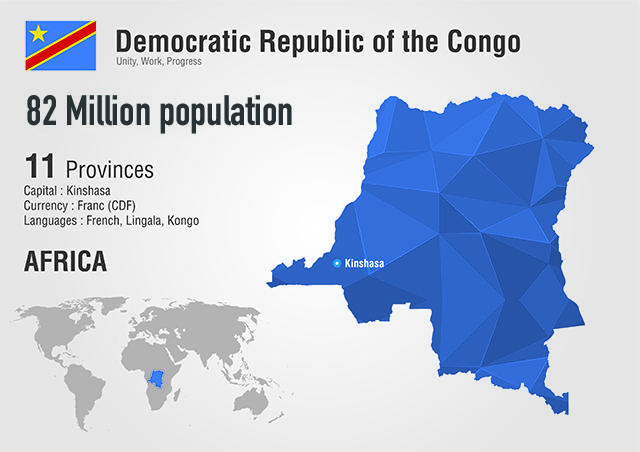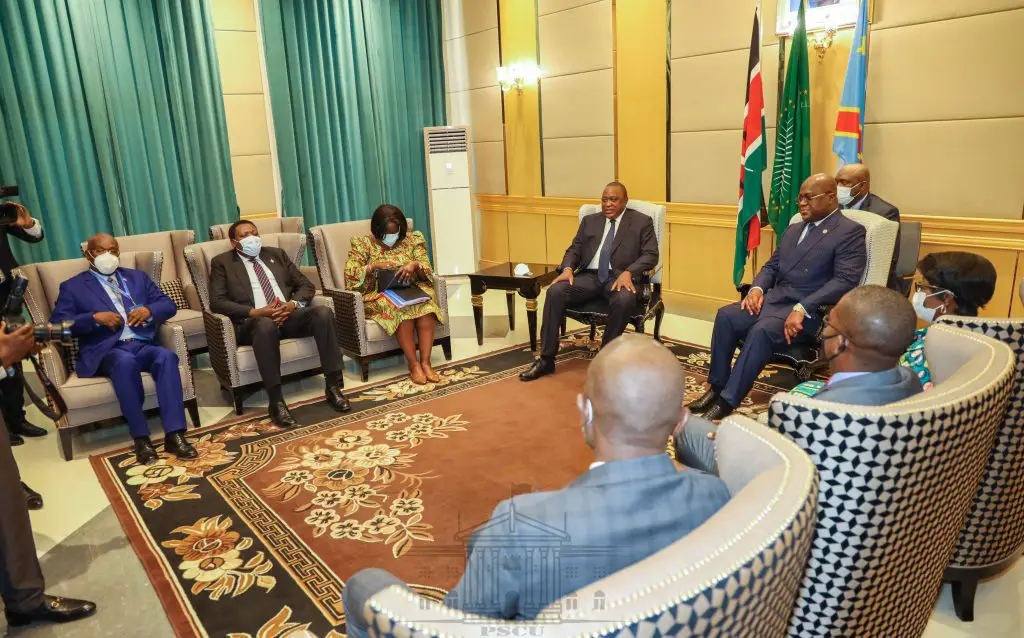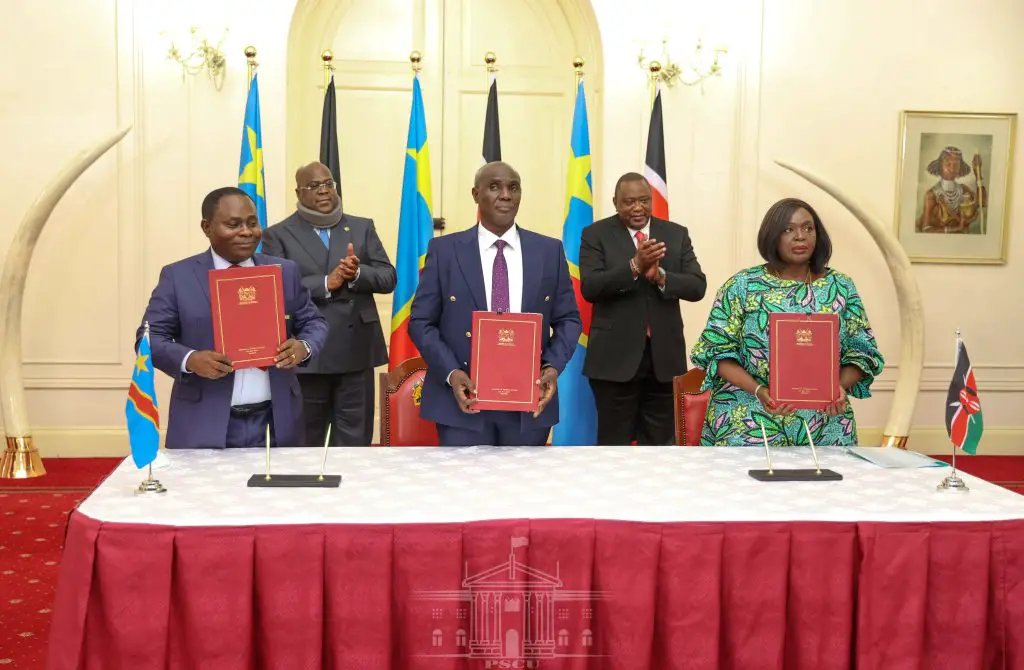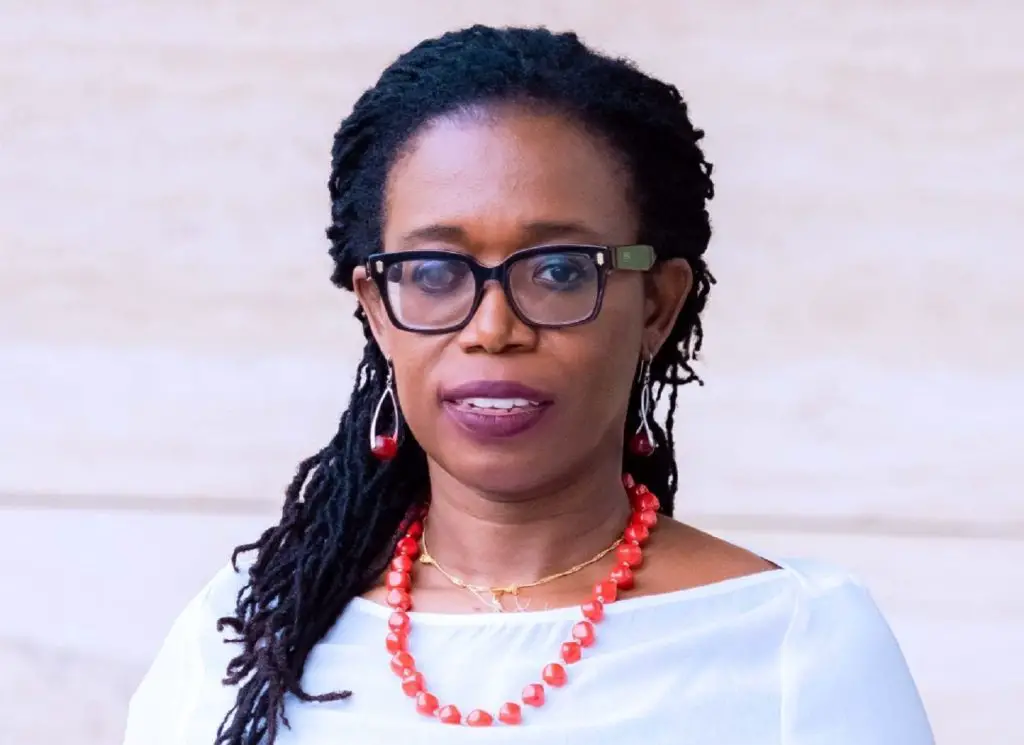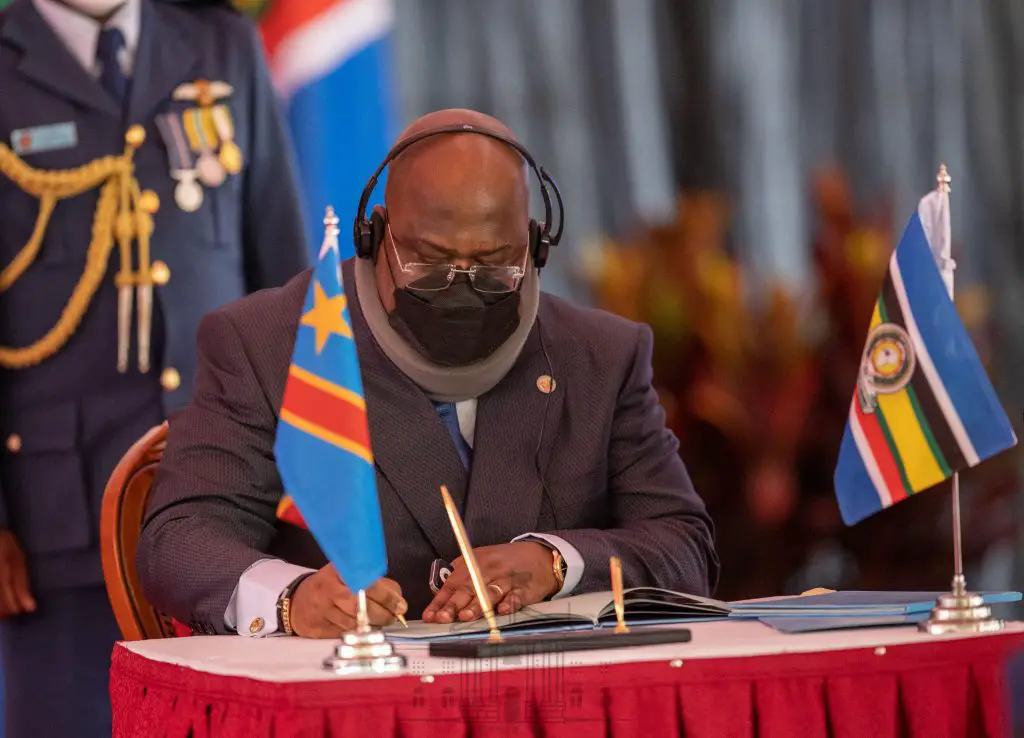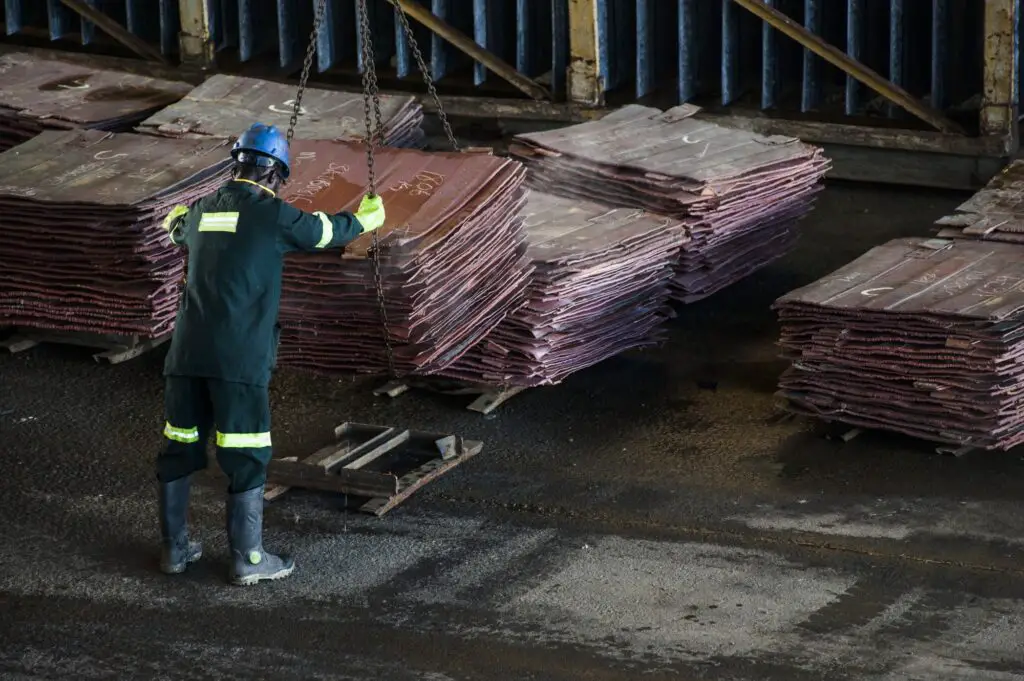- Africa’s new dawn: the rising role of digital and AI in agriculture
- Can Dangote Refinery Transform Africa Energy Ambition
- Gallup Survey: 80 per cent of Kenyan Workers Are Disengaged and Seek New Opportunities
- Madagascar Man Freed from 5KG Tumor After 15-Year Struggle
- How women in Africa are perceived and treated
- Sugar consumption in Kenya to Increase to 1.23 Million Tonnes
- Can Somalia and Turkey Oil deal Bring Change in Somaliland
- Remittances to Kenya dropped to $371.6 million in June, marking a six month low
Browsing: Democratic Republic of Congo
- East Africa’s banking giant KCB Group reports heightened operational expenses, which surged to $627 million in 2023, up from $447.9 million in 2022.
- The costs are associated with the consolidation of its subsidiary in the Democratic Republic of Congo, Trust Merchant Bank (TMB),
- Additional expenditures were related to a voluntary retirement scheme as well as litigation fees.
KCB Group, one of East Africa’s banking giants, has reported a net profit decline to $282 million for the year ending December 2023, from $307 million in 2022.
The bank has attributed this decline to increased operational costs and higher provisions for bad loans as primary reasons for the downturn in profitability.
In a period marked by economic challenges and strategic expansions, KCB Group faced heightened operational expenses, which surged to $627 million in 2023, up from $447.9 million in 2022.
DRC-based Trust Merchant Bank consolidation costs
This increase was largely due to …
- On December 20, 2023, the eyes of Africa and the international community are keenly focused on the Democratic Republic of Congo (DRC) as it goes to its presidential and legislative elections.
- The elections in the DRC hold significant implications for the region and the international community.
- The recent developments in the Democratic Republic of Congo (DRC) have led to a significant diplomatic response, particularly from Kenya.
On December 20, 2023, the eyes of Africa and the international community are keenly focused on the Democratic Republic of Congo (DRC) as it goes to its presidential and legislative elections. The DRC, known for its vast mineral wealth, is at a pivotal point in its democratic journey, with the elections being a critical step towards stability and development.
The upcoming elections are taking place amid a complex backdrop of security challenges, particularly in the eastern regions where armed conflicts continue to displace millions. …
Africa has today emerged as a fertile ground for groundbreaking startups. As 2024 approaches, the continent’s startup scene is buzzing with activity, marked by impressive funding rounds and strategic expansions. This trend is a fleeting moment and a testament to African entrepreneurship’s resilient and dynamic spirit.
The Exchange Africa spotlights five startups thriving and redefining the business landscape in their respective sectors. From renewable energy solutions in the Democratic Republic of Congo to digital health platforms in Kenya, these companies embody the ingenuity and potential of Africa’s business ecosystem. They attract significant investment and are poised to substantially impact their communities.…
For Africa, energy security should come first due to the fact that the continent is the least polluter but it bears a disproportionate burden wrought on by climate change impacts. From 1850-2020, according to analysts, Africa’s global emissions contribution have remained below 3 per cent. However, the continent lost about 5– 15 per cent of GDP per capita growth annually from 1986 – 2015.
With the aggressive shift to clean energy, Africa risks even worse human and economic crises due to the multipronged dangers of climate change and the possible displacements caused by mining activities.
Already, climate change-related catastrophes have triggered internal displacement of 2.6 million people going by 2021 estimates. Violence and displacement are some outcomes of climate-related disasters which leaves millions facing acute food shortages and increasing vulnerability. If mining in the DR Congo, and Africa at large, continues as it has for decades, then the displacements, hunger …
In 2020 Democratic Republic of the Congo was placed as the 87th economy in the world in terms of GDP (current US$), number 70 in total exports, number 105 in total imports, number 187 economy in terms of GDP per capita and the number 123 most complex economy according to the Economic Complexity Index (ECI).
According to figures from the Observatory of Economic Complexity (OEC), a global data visualization tool for international trade, as of 2020, the top exports of the Democratic Republic of the Congo are refined copper, cobalt oxides and hydroxides, cobalt, raw copper, and copper ore, exporting mostly to China, Tanzania, United Arab Emirates, South Africa, and Singapore.
The top imports of the Democratic Republic of the Congo are documents of title (bonds etc.) and unused stamps, packaged medicaments, sulphur, refined petroleum, and poultry meat, imported mostly from China, the United States, Zambia, South Africa, and India.…
It is obvious that the DRC’s desire to become a member of the EAC is to tap into the benefits of regional trade, i.e. an expanded market of 300 million people, and to increase Foreign Direct Investment (FDI) through its membership in the EAC bloc. DRC’s capital market remains underdeveloped and consists mainly of the issuance of treasury bonds.
There is no stock exchange in the country and only a small number of private equity firms are actively investing in the mining industry. There are hardly any institutional investors in the DRC except for an insurance company and a state pension fund. The Central Bank of Congo (BCC), developed a market for short-term bonds, which are bought and held by local Congolese banks.
The absence of a domestic debt market has meant that the fixed-rate market is limited to government-issued treasury bonds with maturities of up to 28 days traded …
For starters, this is good news for the landlocked countries. It means that the landlocked countries in the EAC including Uganda, Burundi, Rwanda and South Sudan now have another coastal gateway away from the East African one in Kenya and Tanzania.
In addition, all the partner states have better bargaining power when it comes to trading with other blocs on the continent or internationally.
With the African Continental Free Trade Area (AfCFTA), the deal gets even sweeter.
Continent-wide, fully implementing the AfCFTA will increase intra-African trade with the elimination of duties. Projections show that by just reducing non-tariff barriers (NTBs), intra-African trade could double.…
Since the beginning of the Russia-Ukraine crisis, fertilizer prices have risen by 21 per cent.
It was noted that “the recovery of Africa has been impeded by greater inflation and tighter global financial conditions as well as rising interest rates,”
To counter external shocks, such as the Ukraine crisis, she urged public and private sector partnerships to enhance intra-African agri-food, industry, and service trade. She also urged the continent’s recovery from Covid-19 to get back on track.
When asked if Africa needs a second Marshall Plan, Keita said that Africa already has an effective one, in the AfCFTA, that may help it prepare for unpredictable times.…
By strengthening East Africa’s historical ties, DRC’s accession to the community is vital. The accession of DRC will improve both economic and geopolitical ties inside the Community.
A total of five EAC Member States border the Democratic Republic of the Congo: Tanzania, Burundi, Rwanda, Uganda and South Sudan.
To that end, full membership in the EAC would benefit the people of DRC by allowing them visa-free travel to other EAC nations. In addition, the DRC will nominate nine members of the East African Legislative Assembly and justices to the East African Court of Justice, the Community’s judicial authority.
DRC’s eastern area, which relies heavily on the Dar es Salaam and Mombasa ports for its imports and exports, will benefit greatly from the country’s membership in the EAC, he said.
In terms of size, the DRC dwarfs all six EAC Partner States. DR Congo’s landmass is 2.4 million km2 in comparison …
A dollar is trading at 16.67 Kwacha and 13.35 Seychelles rupees as at December 31. Both countries were among the three worst performers in 2020.
This has fueled speculation from corporate participants and currency retail traders on when exactly to exit foreign currency risks for dollar hoarders or whether to buy the Kwacha as a safer haven store for value.
President Hichilema’s government is in the process of reworking as much as $17 billion in external public debt. He has submitted an endorsement request to the IMF as his administration advances talks with creditors from US$3 billion in Eurobond holders to US$5.8 billion owed to the Republic of China. …





